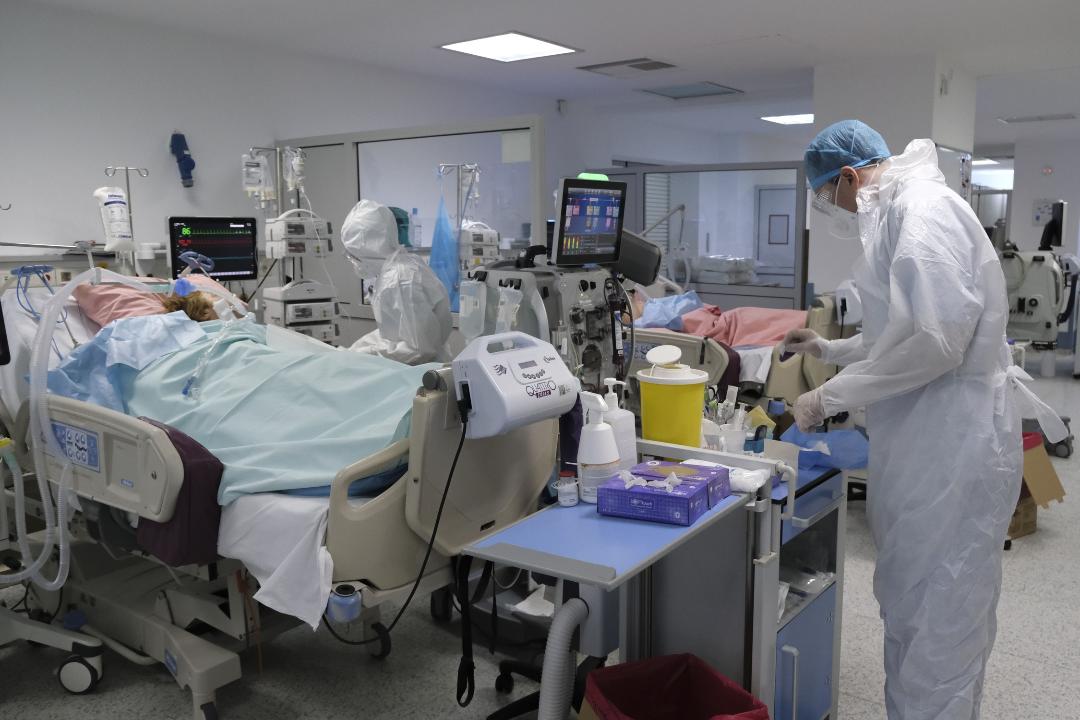The record number of 130 COVID-19 deaths in a 24-hour period announced yesterday offers a glimpse of what healthcare workers must deal with in hospitals.
The data and accounts of healthcare workers in the line of fire at public hospitals (the only ones that treat COVID-19) is terrifying.
“All ICUs are filled to capacity, and when a bed is vacated it is occupied within seconds, and this situation will continue for quite a while. Unfortunately, this year Christmas will be very difficult once again,” said Maria Theodorakopoulou, the director of the NHS Second ICU Clinic at Attiko Hospital, and vice president of the Greek Society for Intensive Care.
In an interview with the First Programme on 91.6 and 105,8 radio, Theodorakopoulou said that, “The number of dead will vary from day to day, but if the influx of cases in hospitals does not stop, then intubations and deaths will not stop either. Unfortunately, people will die and others will need long-term hospitalisation. In this wave [of the epidemic], there is a higher number of hospital admissions, and a longer duration of hospitalisation in both clinics and ICUs.”
Who is admitted to ICUs, healthcare workers’ fatigue
“Consequently, we shall have a system that will be hospitalising more people. Citizens have become tired with the coronavirus, but just imagine how tired all those who confront the disease in hospitals are,” she underlined.
Theodorakopoulou said that the only patients that have a real chance of survival are admitted to ICUs.
“There are international criteria regarding ICU admissions. When we are dealing with the daily routine of doctors, the final decision when you have to choose among 10-15 patients who will be admitted to an ICU is a matter of selecting which patients have a greater chance of survival. We always examine the chances, because none of is God,” she said.
“When we analyse something of which people are not aware, one can see tragic errors in the “translation”. The essence is that the choice ends up with who has the greater possibility of survival and returning to society as an able-bodied person. That is the objective. I wish we could do it for everyone,” she stressed.
Theodorakopoulou said that, “It is not feasible ‘in time of war’ to transform all hospital beds into ICU beds, as an ICU is a distinct space and intensive care doctors require two years of specialised training, which is to say a total of 15 years of study,” she said.
Number of unvaccinated ICU patients
The professor said that 80-90 percent of patients being treated in ICUs are unvaccinated.
“It is a huge percentage. I was in Thessaloniki for one month, and in an 18-bed unit that we opened 98 percent of the patients were unvaccinated.”





